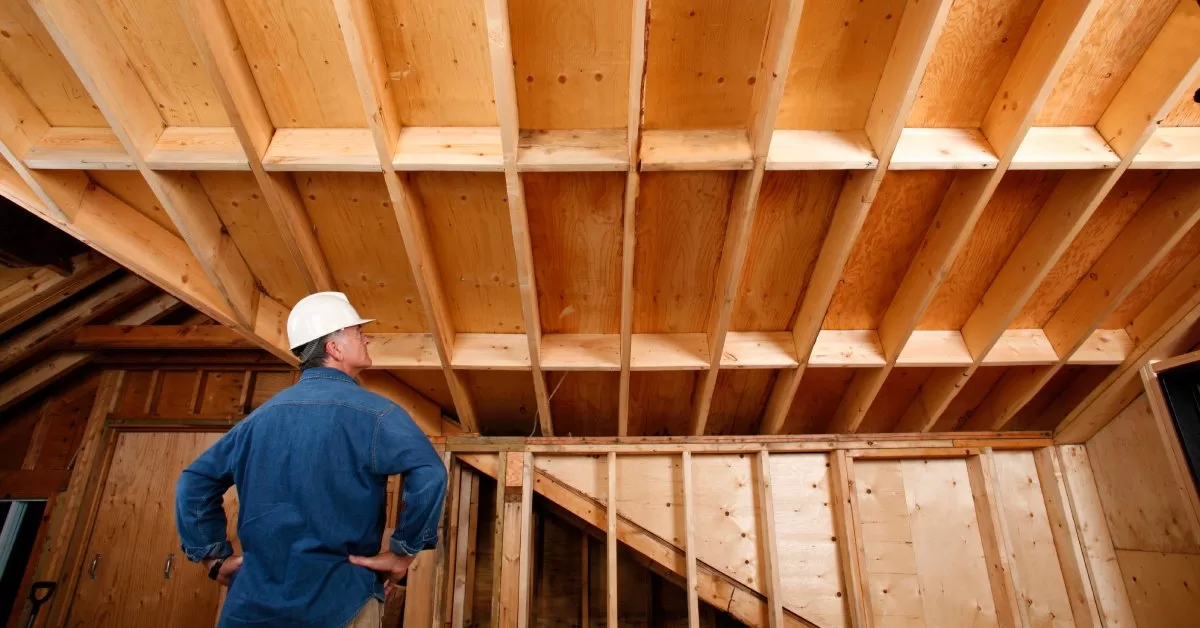Home Addition vs. ADU: Which Should You Choose?

Home expansions are becoming a popular choice for homeowners looking to increase living space or generate extra income. One option to consider is an ADU, or an accessory dwelling unit. It’s a separate, self-contained living space located on the property of the main home.
If you’re unsure if you should choose a home addition or an ADU, you should learn about both options’ advantages and challenges. In this article, we’ll break down their differences to help you make a decision that benefits your lifestyle and property.
Home Additions
A home addition involves expanding your existing home to increase square footage, whether by adding a new room or expanding the kitchen or living room.
At the end of the renovation, the addition is a seamless integration into the home’s existing design. This style of renovation is ideal for homeowners looking to augment shared living spaces or accommodate a growing family.
One of the key advantages of a home addition is customization. You can design the space to meet specific needs, like creating a home office or adding a guest suite. Additionally, home additions can increase your property’s value by making your home more functional and spacious. However, this type of expansion often involves higher construction costs, especially if structural changes are necessary.
Accessory Dwelling Units (ADUs)
Accessory dwelling units (ADUs) are fully functional, independent living spaces built on the same property as a primary residence. ADUs may be attached, sharing a wall with the main house, or a detached structure that’s commonly located in the backyard.
These units come with their own utilities, including a kitchen, bathroom, and separate entrance, offering complete privacy for occupants. Therefore, they’re favorable for homeowners to use as rental units, guest houses, or accommodations for aging family members.
The greatest benefit of an accessory dwelling unit is its potential to generate rental income. With the growing demand for housing, especially in urban areas like Lexington, KY, ADUs offer homeowners a way to earn passive income.
On the downside, ADUs are subject to local zoning regulations that may limit their size and require additional infrastructure, such as separate utility hookups. Detached ADUs, in particular, may also differ in appearance from the main house, which could affect the aesthetic harmony of your property. As such, it’s important to check local zoning codes and work with a contractor familiar with ADU regulations.
Zoning Laws and Regulations

Understanding local zoning laws and building codes is crucial when considering a home addition or an ADU. Home additions must comply with setback requirements, height restrictions, and other factors affecting where and how large the new area can be. Each city, including Lexington, KY, has a set of rules regarding household additions that homeowners must follow.
ADUs face stricter regulations and typically require permits for secondary dwelling units. Zoning laws may restrict the size, location, and even the use of an ADU on the property.
Both projects may require you to submit plans to local authorities for approval before construction begins. Working with a contractor who understands local zoning codes and can help navigate these complexities is imperative, ensuring that the project is fully compliant.
Cost Factors
Home addition and ADU costs are a significant factor in your decision-making process. Home additions can be relatively expensive, especially when they involve significant structural changes like adding a second story. The total cost will depend on the size and complexity of the project as well as the types of materials used.
ADUs are generally more affordable than home additions. Factors such as whether the unit is detached or attached, the need for separate utilities like plumbing and electrical systems, and local zoning laws can all impact the overall cost.
As with home additions, a well-executed ADU project may involve additional costs. Nevertheless, the unit could offer financial benefits if used as a rental unit.
Impact on Property Value
Both home additions and ADUs can increase a property’s value, but the effect may vary depending on the quality of the project. Home additions that expand functional living spaces—like adding a bedroom, kitchen, or living room—can make your home more appealing to buyers. This type of expansion enhances the home’s livability and overall square footage, which can make a significant difference in resale value.
ADUs can also boost property value, particularly when used as a rental unit or for multigenerational housing. The added income potential makes an ADU an attractive option for homeowners who want to offset mortgage costs or generate passive income. When properly designed and maintained, ADUs can be an appealing feature for future buyers, especially those looking for rental or accommodation for guests.
Hiring Professionals

Whether you choose a home addition or an ADU, hiring the right professionals will affect the success of the project. A skilled home addition contractor keeps the project on schedule, within your budget, and compliant with building codes.
Regarding ADUs, it’s especially important to work with a contractor experienced in secondary dwelling units. They can navigate the complexities of zoning, permits, and utility requirements.
Make the Right Choice
The choice between a home addition or an ADU comes down to your long-term goals, budget, and lifestyle. A home addition might be the better option if you need more shared living space and want to maintain a unified design. It’s ideal for expanding areas like kitchens, living rooms, or bedrooms.
Alternatively, an accessory dwelling unit could be the right fit if flexibility is a priority. It can accommodate family members and guests or serve as a rental unit by providing a self-contained living space. Not to mention, an ADU will minimize disruption to your daily life during construction.
Financially, both options offer different benefits. Home additions increase square footage, making your home more appealing to future buyers, while ADUs may offer rental income potential that can help cover construction costs. Consider the long-term impact on your property value and your lifestyle needs before making a final decision.
For personalized advice and professional guidance, Distinctive Design Remodeling is here to help. With 35 years of experience in residential contracting, we specialize in home renovations like custom-built garages, room additions, ADUs, and more. Serving Lexington, KY, and Central KY, we use only the highest quality materials to deliver outstanding results. Contact us today for a free consultation, and let us help you bring your home improvement vision to life!
